Background
Citizen consumer and civic Action Group (CAG) and Press Institute of India (PII) jointly organized a seminar on “Tamil Nadu Solar Policy 2012 & Rooftop Solar Implementation: Issues and Challenges” on October 24, 2017 at Press Institute of India, Chennai. The seminar attracted participants from various media organizations as well as researchers.
The objective of the seminar was to facilitate a discussion to understand the issues related to consumer-level acceptance of rooftop solar, constraints in adopting net-metering, political economy surrounding the industry, and legal and regulatory aspects. The seminar focused on the need for researchers and media to play an effective role in the promotion of rooftop solar electricity in Tamil Nadu. Speakers included renewable energy developers, consultancy firms, former regulators, and representatives of international think-tanks.
Seminar Programme
Sashi Nair, Director, PII, welcomed the seminar participants and opened the discussion with an introduction to the renewable energy scenario in Tamil Nadu, particularly the rooftop solar segment. Mr. Nair referred to the change.org petition that highlighted problems related to rooftop solar in Tamil Nadu.
K. Vishnu Mohan Rao, Senior Researcher, CAG, presented an introduction to the rooftop solar policies in India. He sought answers from the experts to understand how policies that are extremely similar in nature can give such different results in terms of capacity addition.
D. Suresh, a solar energy developer, shared his encounters on installing a rooftop solar system at his house. He shared his experiences about converting his home into an independent unit and generating power, preserving water, utilizing biogas, and also maintaining a kitchen garden. He added that his success story was not only about being independent of the grid but also in generating excess power, the government has introduced a scheme called net metering through which the excess solar power generated can be fed into the grid and credit obtained for it.
Muthusamy, former director, Tariff, TNERC (Tamil Nadu Electricity Regulatory Commission), spoke about the legal and regulatory issues that delay the net-metering facility for rooftop solar. He mentioned about the petition filed by the Tamil Nadu Generation and Distribution Corporation Limited (TANGEDCO) seeking change in system of power credits given in the Tamil Nadu Solar Policy of 2012. TANGEDCO requested to revise the tariff of rooftop solar to 50% of the lowest tender rate of megawatt scale solar power plant, which is against the Tamil Nadu Solar Policy and net-metering order issued by TNERC. With respect to this petition, he mentioned that this decision of TANGEDCO makes the grid-connected rooftop solar systems in the state financially unviable. He complained about the poor media reporting on power sector in Tamil Nadu and requested the media to do more research on power sector issues and come out with better reports on the issues which will have great impact on the society.
Raghunathan, Managing Director, Solkar Solar Industry Ltd, talked about poor engineering in installing solar panels and poor quality panels that affect overall system efficiency. He further spoke about the developing technologies in the field of solar energy and emphasized the need for improving solar panel efficiency. He said that rooftop solar system with a battery backup is a better option for consumer scale rather than net metering facility. He emphasized the need to simplify the net metering policy and mentioned the constraints in applying for net meters due to the political economy surrounding the industry.
Toine van Megen, Auroville Consulting, gave a presentation on consumer scale solar energy. He explained the concept of grid-connected solar photovoltaic system with net metering and gross metering. He further clarified the difference between net metering and gross metering and the present provisions in Tamil Nadu. He presented the financial impact of net metering and came up with an innovative concept of net metering accounting, which includes an energy credit factor and seems to be financially sustainable for both the utility and the consumers.
T. Ramakrishnan, Associate Editor, The Hindu, spoke about the political challenges faced by the journalists in covering issues related to rooftop solar policy. He laid thrust on the need for consumer awareness saying that it will be beneficial to promote rooftop solar to residential consumers.
S.N. Dinesh Kumar, CMD, Sootless Energy, informed the gathering about advancement in electric grid, solar, wind and hybrid storage, energy markets, and emerging cloud technologies. He also insisted on the importance of consumer awareness saying that the media can play a major role in spreading the word. He was confident that distributed hybrid technologies, consumer awareness on holistic and social benefits of using renewables, and tariff adaptation could help in overcoming the challenges of solar energy sector.
Bharath Jairaj, Senior Associate, World Resources Institute, summed up the proceedings stating the benefits of solar energy in achieving India’s ambitious renewable energy targets. He pointed out that journalists have an important role in bringing awareness and providing momentum for the adoption.
Some photos from the event:
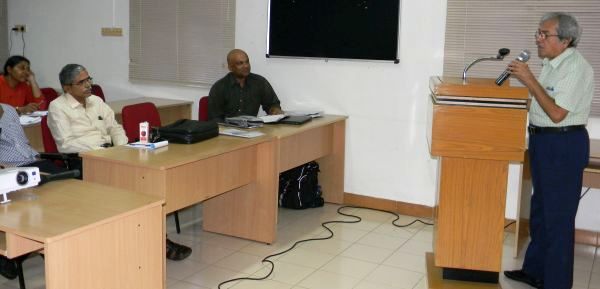
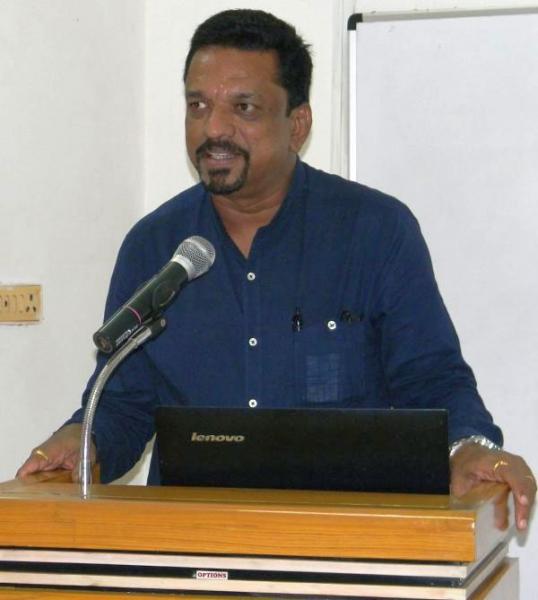
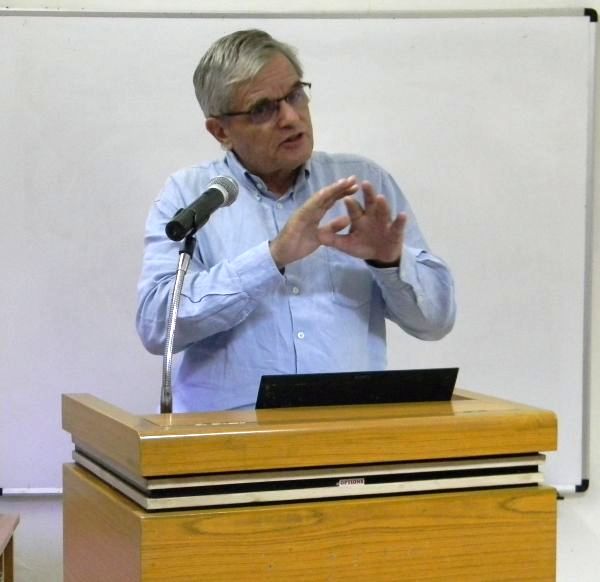
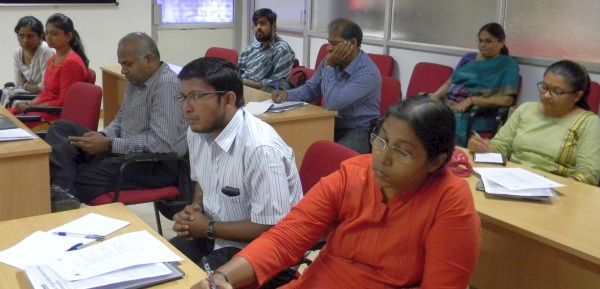
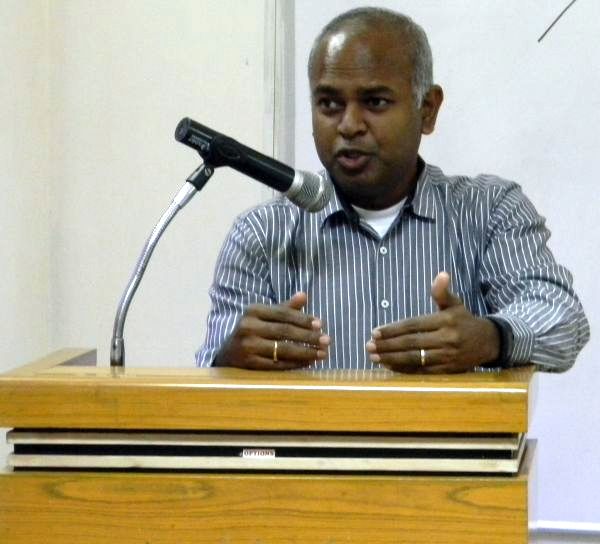
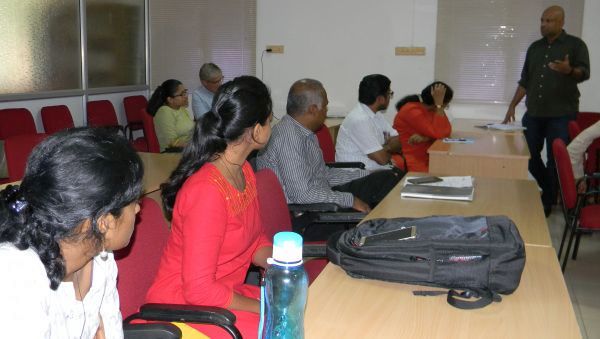
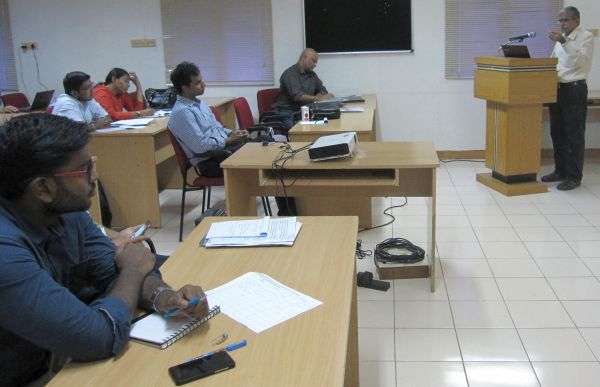
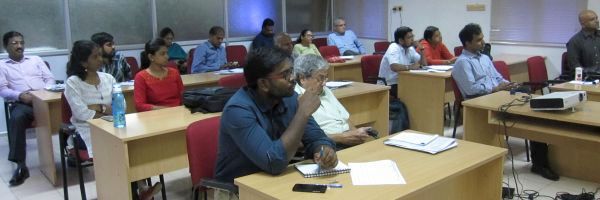
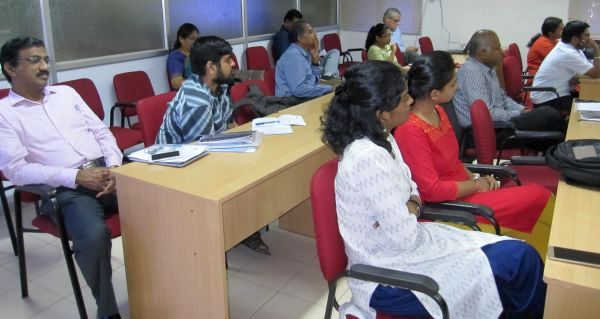
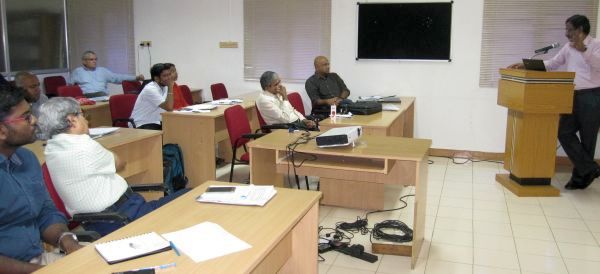
Add new comment